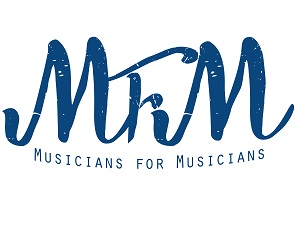Benefits of Chiropractic Care
Date: August 24, 2016
Venue: WeWork Wall Street (NY)
Review by Dawoud Kringle
This next workshop in the series on health was titled Preparing For Your Encore. The event was presented by Dr. Brian Poole, chiropractor and owner of Encore Chiropractic. (http://encorechiropractic.com/).
As is the custom of an MFM meeting or workshop, a musical offering preceded the talk. I had the honor of presenting this music. I played a selection from my Harmolodic Raga Cycle, The Adulterous Moon on dilruba.
Poole began with a brief introduction. This included some personal history; specifically, how he became interested in being a chiropractor. At age 14, he suffered from chronic, debilitating, headaches. After months of pain, his parents took him to a chiropractor. The experience inspired his passion for chiropractic medicine and his need to help people who are also suffering by providing a solution.
Poole then presented a very different perspective on the chiropractic science, and the specific health problems related to chiropractic medicine that musicians deal with. These include overuse of muscles, postural problems, the body’s reaction to carrying heavy items, weird schedules, weather and environmental changes, technical flaws, excessive tensions in the body and mind, stress, and illness. Musicians put their body through more trauma than most people realize. Poole went on to discuss the psychological effects of injury or illness. This is something musicians are constantly worried about, as injuries and health issues would threaten our careers.
The question of what are we looking for health-wise is often overlooked. There are the common things (such as the presence and absence of symptoms, whether the symptom a problem, etc.). Symptoms are the last thing to show up, and the first to go away. This also relates to back problems and movement.

Photo by Dawoud Kringle
The Four Foundations of Health:
1. Nutrition
2. Movement
3. Sleep
4. Balanced Nervous System
The later is where chiropractic medicine comes in.
The aspect of the function of health to the musician was examined with considerable detail. This was actually prefaced with the phrase
“express yourself before you wreck yourself.” The nervous system, brain functions, tissues, muscle, skeletal system, etc. were described in terms of good and bad functions, and an exchange of information. The malfunction of this exchange of information was called
vertebral subluxation (i.e. stress, exceeding bodily limits, and a breakdown of nervous system function).

The primary goal of health is the body’s ability to adapt to stress.
A chiropractor deals primarily with the brainstem. This is analogous to a circuit breaker. The brainstem is where the brain enters the body. All signals enter and pass through there. It is most powerful neurological area, and it’s the center of stress reaction.

Photo by Dawoud Kringle
Encore starts its diagnosis and treatment with a nervous system check. Instrumentation measurements, biochemical imaging, etc. then, the specific problems / ailments, are then determined to be a problem of nervous system function. Poole explained that chiropractic medicine is actually centered around nervous system functions.
The practice of preventative medicine was discussed. It’s cheaper to eat right, exercise regularly, and get plenty of rest than to deal with a heart attack.
Then we were led through a series of simple yet effective exercises to help maintain back and spine health. I must confess I felt quite refreshed afterward!
The final thing that was brought up was trust between the patient and the health care provider. This is of utmost importance.

Photo by Sohrab Saadat Ladjevardi
The workshop concluded with a different musical offering. Singer / guitarist / songwriter Lindsey Wilson and percussionist Reggie Sylvester performed a song about Trayvon Martin. The music was quite beautiful, but serious, and haunting in both its sincerity and intensity.
The workshop was clearly a success. It’s indicative of MFM’s progressive, musician-centric agenda, and forward thinking in addressing the needs of the musical community.



